This post is part of a virtual book tour organized by Goddess Fish Promotions. Robert Creekmore will award a randomly drawn winner a $10 Amazon/BN gift card. Click on the tour banner to see the other stops on the tour.
If you write adult fiction, and your work angers no one, you’re doing something wrong.
I feel as though the purpose of my writing career is to piss off all the right people and to comfort those they seek to crush.
Who are the right people? Those who have used their station in life to make existence miserable for others because of immutable differences. In fact, I believe this theme to be the characteristic that sets good literature apart from paragraphs of window-dressing bound between two covers.
In my work, I deal with the realities of the rural Evangelical South which is the environment where I grew up. I was even named after Confederate General, Robert E. Lee. Though, I am of no relation. I attended a church and school where I was taught to hate anyone who wasn’t white, straight, and a specific type of Christian.
Today, I write fiction featuring LGBTQ+ characters fighting against a cult with similar viewpoints, albeit, far more extreme as the novel series goes on. However, the beginning of the first novel provides a rather accurate depiction of what the world was like for queer youth in the early nineteen-nineties.
The Prophets series is also an allegory that begins purposefully during the rise of modern Christian nationalism, specifically, nineteen-ninety-three. That was the year of the Branch Davidian incident in Waco, Texas.
By the end of book three, Prophet’s Death, I’ve laid out a vision of how a militia movement metastasized so virulently that it bamboozled a segment of the population to a point where they were willing to base their entire lives around a man who is the antithesis of the savior they claim to worship. The truth is, they only wanted an excuse to hate openly and to control others who weren’t like them.
I make no secret that this is an allegory for the MAGA movement and that the Character Abraham Prophet is based upon his actions and the manipulation techniques he’s harnessed to control the hordes of rubes who follow him blindly. If this offends you, I truly don’t care. Cruelty and stupidity should bother you more. Stop personalizing politicians of any party because they tell you that you’re somehow special, or a ‘real American’. They’re lying. They don’t care about you. They care about power and making their friends and themselves wealthier off of your underpaid labor.
This, along with the extreme level of violence in my novels, will probably be a turn-off for a lot of readers. I’m fine with that. I’m here to appeal to the weirdos. I wouldn’t have it any other way.
Death-cult leader Joseph Proffit has met his end! Along with him perishes the secret method for manufacturing indigo, the substance that imbued him with godlike abilities.
To the dismay of Naomi’s family, she succumbed to the injuries Joseph dealt her during their final battle atop the abandoned Coast Guard station, Frying Pan Tower, thirty miles off the North Carolina coast.
Both of their bodies were lost at sea when the one-hundred-foot-tall structure crumbled during Tropical Storm Gabriel.
Naomi’s beloved companions escaped aboard her dive boat, along with Joseph’s final victim, who is on the verge of death.
In the aftermath, Naomi’s family has no choice but to rebuild their lives in hiding, fearing reprisal from the handful of remaining Apostle loyalists.
Soon, their secret, dormant conflict will be thrust onto the world stage by a wealthy benefactor who funnels his personal hatred and unfounded grievances into throngs of ignorant followers.
Is this the end of Naomi’s family? Without her, how will they survive?
Enjoy an Excerpt
The winds of Tropical Storm Gabrielle punish the small dive boat. Its howling feels like the voice of nature herself crying out in lamentation at the death of Naomi Pace.
As Nate pilots the craft over each wave, there’s a moment when he can hear the engines rev hard as the props come out of the water momentarily just before crashing down again. This cycle repeats every few seconds, seemingly without end.
Below deck, Rebecca and Herschel steady an unconscious Malcolm by keeping him squeezed between their bodies. It’s difficult. There’s nothing to hold onto since the Apostles stripped the cabin bare. The two hours it takes to get back to their dock are hell, both physically and introspectively.
Naomi was Nate’s best friend. To him, she was invincible.
How could she be dead? Nate thinks to himself as he involuntarily projects images of their time together across the water.
He has successfully outrun the incoming storm wall, but a new one awaits his fractured mind when all of the chaos subsides.
Neither Herschel nor Rebecca has the same composure. They wail with grief. Reaching across Malcolm’s limp body, they hold one another’s hands for comfort as much as they do to keep their injured companion safe from the onslaught of the turbulent water.
Nate threads the needle at the Masonboro Inlet, just like Naomi taught him. The waves rocking the swollen bay attempt to push them easterly into the mainland. Even though it means safety, the sight of the dock fills Nate with dread. Its arrival in the foreground always meant the end of a day fishing with Naomi, until now.
About the Author: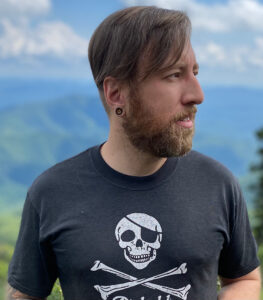
Robert Creekmore is from a rural farming community in Eastern North Carolina.
He attended North Carolina State where he studied psychology. While at university, he was active at the student radio station. There, he fell in love with punk rock and its ethos.
Robert acquired several teaching licenses in special education. He was an autism specialist in Raleigh for eight years. He then taught for four years in a small mountain community in western North Carolina.
During his time in the mountains, he lived with his wife Juliana in a remote primitive cabin built in 1875. While there, he grew most of his own food, raised chickens, worked on a cattle farm, as well as participated in subsistence hunting and fishing.
Eventually, the couple moved back to the small farming community where Robert was raised.
Annoyed with the stereotype of the southeastern United States as a monolith of ignorance and hatred, he wanted to bring forth characters from the region who are queer and autistic. They now hold up a disinfecting light to the hatred of the region’s past and to those who still yearn for a return to ways and ideas that should have long ago perished.
Robert’s first traditionally published novel, Prophet’s Debt, was a Manly Wade Wellman Literary Award Finalist.
His second, Prophet’s Lamentation, was a Lambda Literary recommendation for July 2023.
Buy the book at Amazon.
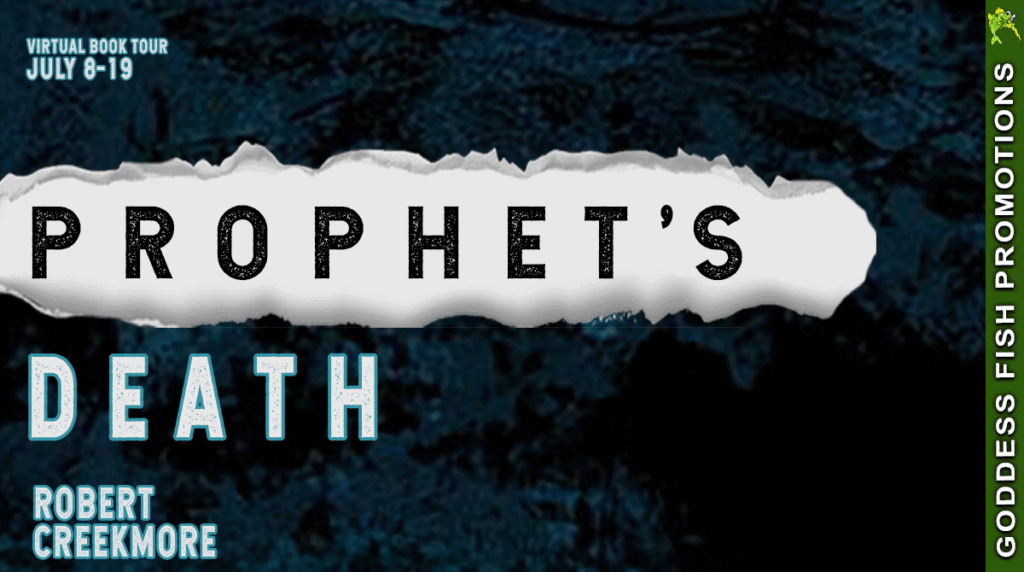
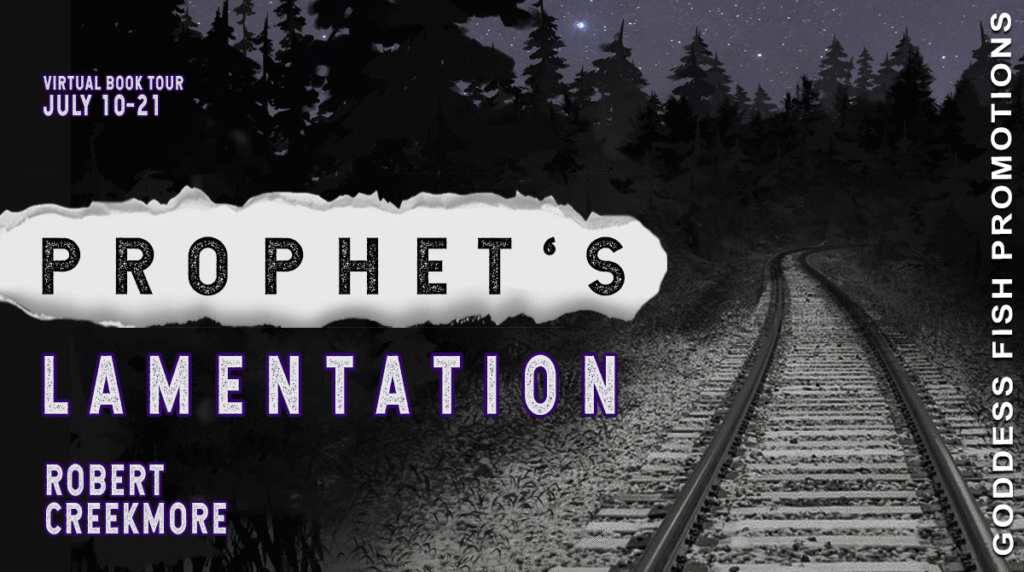
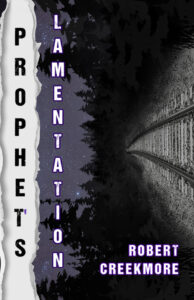 Two years after Naomi murdered the serial killer and rapist Vernon Proffit, she is attempting to adjust to a quiet life with her wife, Tiffany. But Vernon’s flock is not done with her. Under new leadership, their numbers have swollen as they morphed from a single entity into a network of cultists called Apostles of the Cloven Hand.
Two years after Naomi murdered the serial killer and rapist Vernon Proffit, she is attempting to adjust to a quiet life with her wife, Tiffany. But Vernon’s flock is not done with her. Under new leadership, their numbers have swollen as they morphed from a single entity into a network of cultists called Apostles of the Cloven Hand.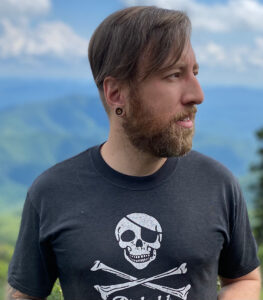 Robert Creekmore is from a rural farming community in Eastern North Carolina.
Robert Creekmore is from a rural farming community in Eastern North Carolina.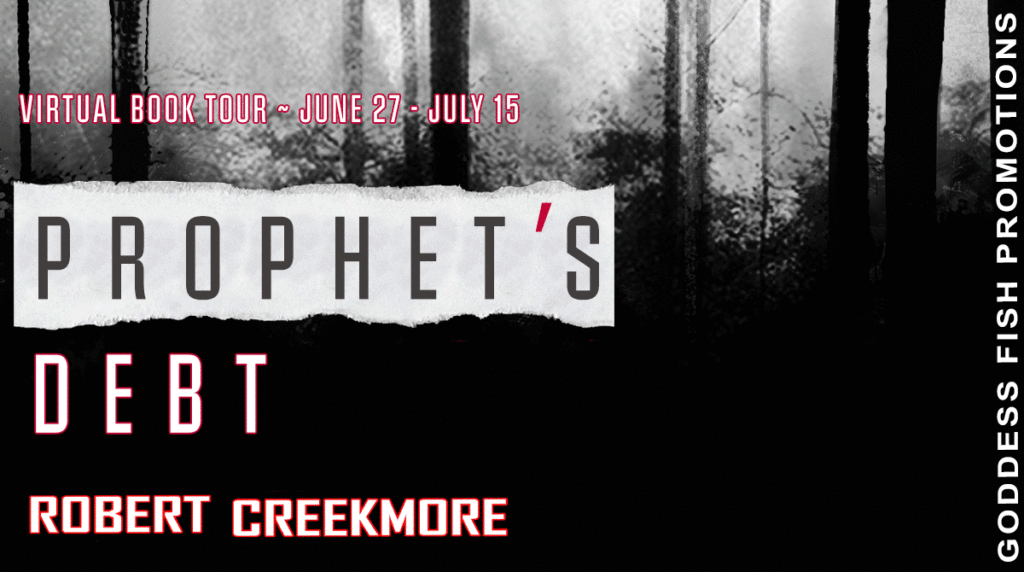
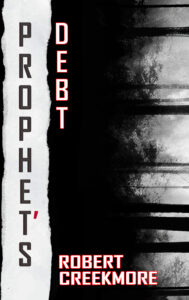 At fourteen, Naomi Pace knows she loves her best friend, Tiffany. During the Perseid meteor shower of summer 1993, she finds out Tiffany feels the same, just as they’re outed.
At fourteen, Naomi Pace knows she loves her best friend, Tiffany. During the Perseid meteor shower of summer 1993, she finds out Tiffany feels the same, just as they’re outed. Robert Creekmore is from a rural farming community in Eastern North Carolina.
Robert Creekmore is from a rural farming community in Eastern North Carolina.





















